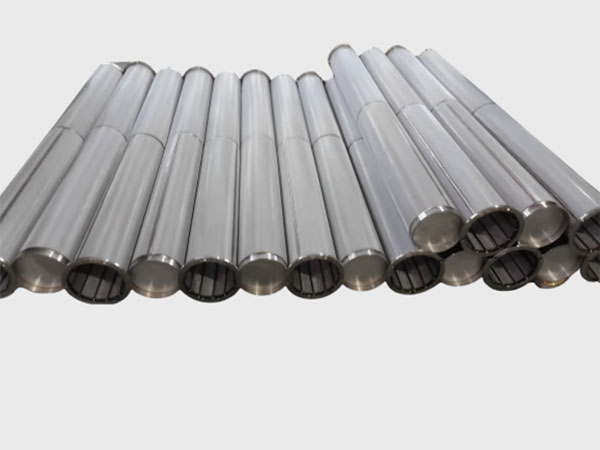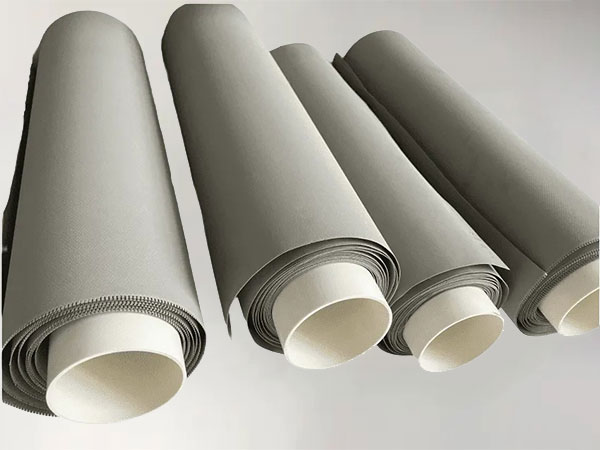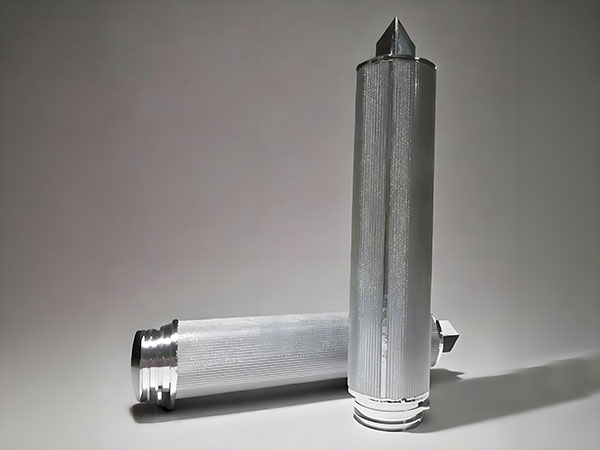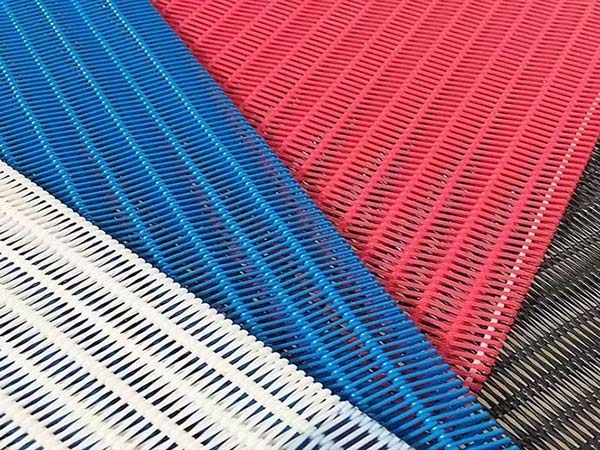Sintered Wire Mesh with Perforated Metal Sheet
Type C is a sintered wire mesh with perforated metal sheet. Multiple layers of wire cloth (can be of type one or type two or any combination) are sintered together with a layer of perforated metal sheets. Sintering a layer of perforated metal sheets on both sides is also an option for extremely high pressure applications.


side view layer structure of sintered wire mesh with perforated metal sheet
Performance and customization of sintered wire mesh with perforated metal sheet
The perforated metal sheets are laminated sheets of sintered wire cloth. Therefore, Type C is suitable for applications where high pressure self-support is required, such as large diameter nut filters, large kinescope screens for automatic filtration, etc.
The perforated metal can be round holes, square holes, honeycomb or other types. The dead zone (margin) can be designed and retained according to the application.

sintered wire mesh with square hole perforated metal sheet

sintered wire mesh with round hole perforated metal sheet

sintered wire mesh with 8 mm round hole perforated metal sheet

sintered wire mesh with hexagonal perforated metal sheet
316 (1.4401), 316L (1.4404), 304, 304L stainless steel are standard materials for Type C sintered wire mesh with perforated metal.
Other exotic materials are also available on request, such as 310S, 904L, Hastelloy C276, Hastelloy C22, Monel 400, Inconel 625, etc.
FAQ's
There are many ways to keep you going. Maintenance is crucial for industrial water filters to achieve sufficient filtration and long-term use. To avoid being shut down, you must clean and replace your filter element according to the manufacturer's instructions.
- Plan to regularly inspect the internal screen components.
- Arrange regular inspections of electronic control systems.
- Arrange to regularly add lubricating grease to bolts and sealing components.
- Regularly inspect the filter housing for paint peeling off..
Many industrial water filters need to be replaced within 18 months. Usually depends on the degree of pollution and frequency of use. Therefore, these factors will determine the service life of commercial water filters.




